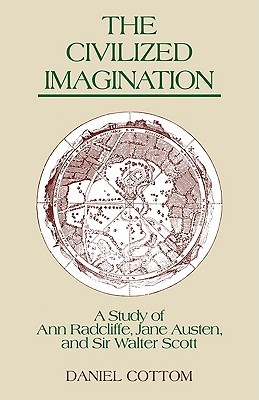
- We will send in 10–14 business days.
- Author: Daniel Cottom
- Publisher: Cambridge University Press
- ISBN-10: 0521110971
- ISBN-13: 9780521110976
- Format: 14 x 21.6 x 1.4 cm, softcover
- Language: English
- SAVE -10% with code: EXTRA
Reviews
Description
The Civilized Imagination is a study of literature in a period of cultural change. As part of the transition from the eighteenth to the nineteenth century a great transformation occurred in the relations among aesthetic theory, literature, and society. This study analyses such changes as they appear in the works of Ann Radcliffe, Jane Austen and Sir Walter Scott, three apparently distinct novelists whom the author locates within a unified cultural movement. Although the works of these writers are extremely different in many respects, in Professor Cottom's view they are all preoccupied with the changing relation between aristocratic and middle-class values. In Ann Radcliffe's works middle-class values are beginning to emerge within a governing aristocratic context; in Jane Austen's novels these newer values are precariously balanced against the old; in Sir Walter Scott's books they have become victorious, at least superficially. Professor Cottorn examines the way these writers deal with such topics as taste, landscape, communications, morality and women, in order to show how certain aesthetic problems result from social change.
EXTRA 10 % discount with code: EXTRA
The promotion ends in 16d.18:50:08
The discount code is valid when purchasing from 10 €. Discounts do not stack.
- Author: Daniel Cottom
- Publisher: Cambridge University Press
- ISBN-10: 0521110971
- ISBN-13: 9780521110976
- Format: 14 x 21.6 x 1.4 cm, softcover
- Language: English English
The Civilized Imagination is a study of literature in a period of cultural change. As part of the transition from the eighteenth to the nineteenth century a great transformation occurred in the relations among aesthetic theory, literature, and society. This study analyses such changes as they appear in the works of Ann Radcliffe, Jane Austen and Sir Walter Scott, three apparently distinct novelists whom the author locates within a unified cultural movement. Although the works of these writers are extremely different in many respects, in Professor Cottom's view they are all preoccupied with the changing relation between aristocratic and middle-class values. In Ann Radcliffe's works middle-class values are beginning to emerge within a governing aristocratic context; in Jane Austen's novels these newer values are precariously balanced against the old; in Sir Walter Scott's books they have become victorious, at least superficially. Professor Cottorn examines the way these writers deal with such topics as taste, landscape, communications, morality and women, in order to show how certain aesthetic problems result from social change.


Reviews